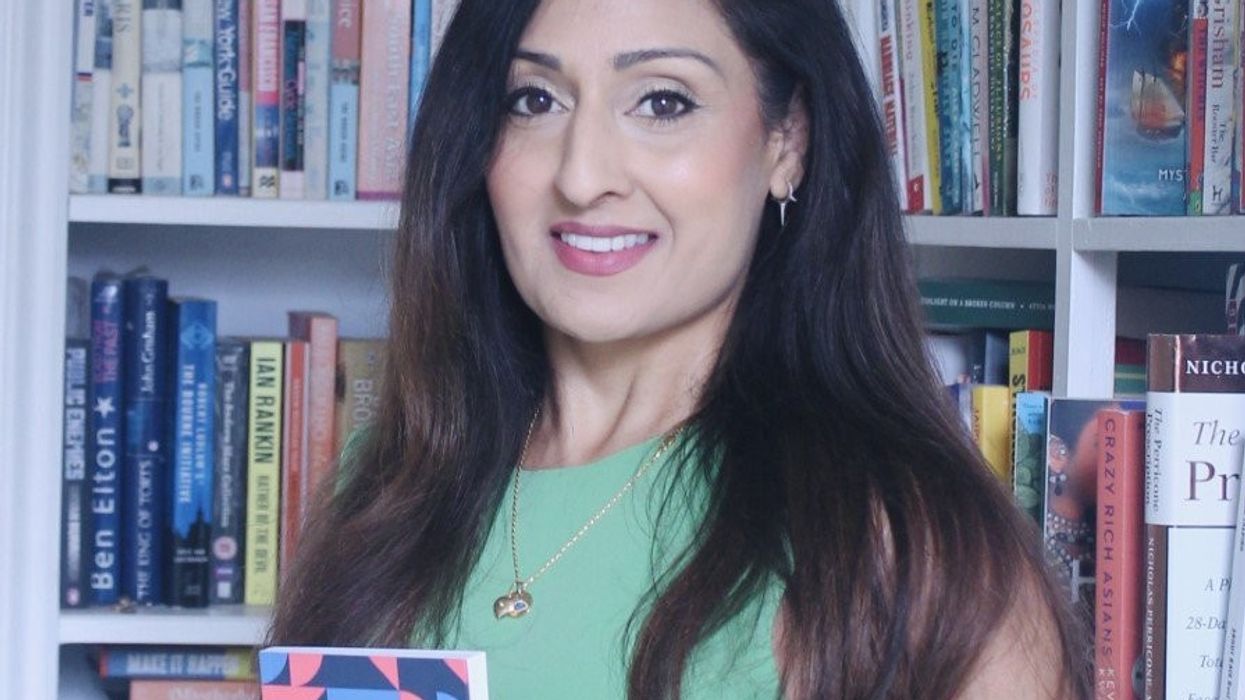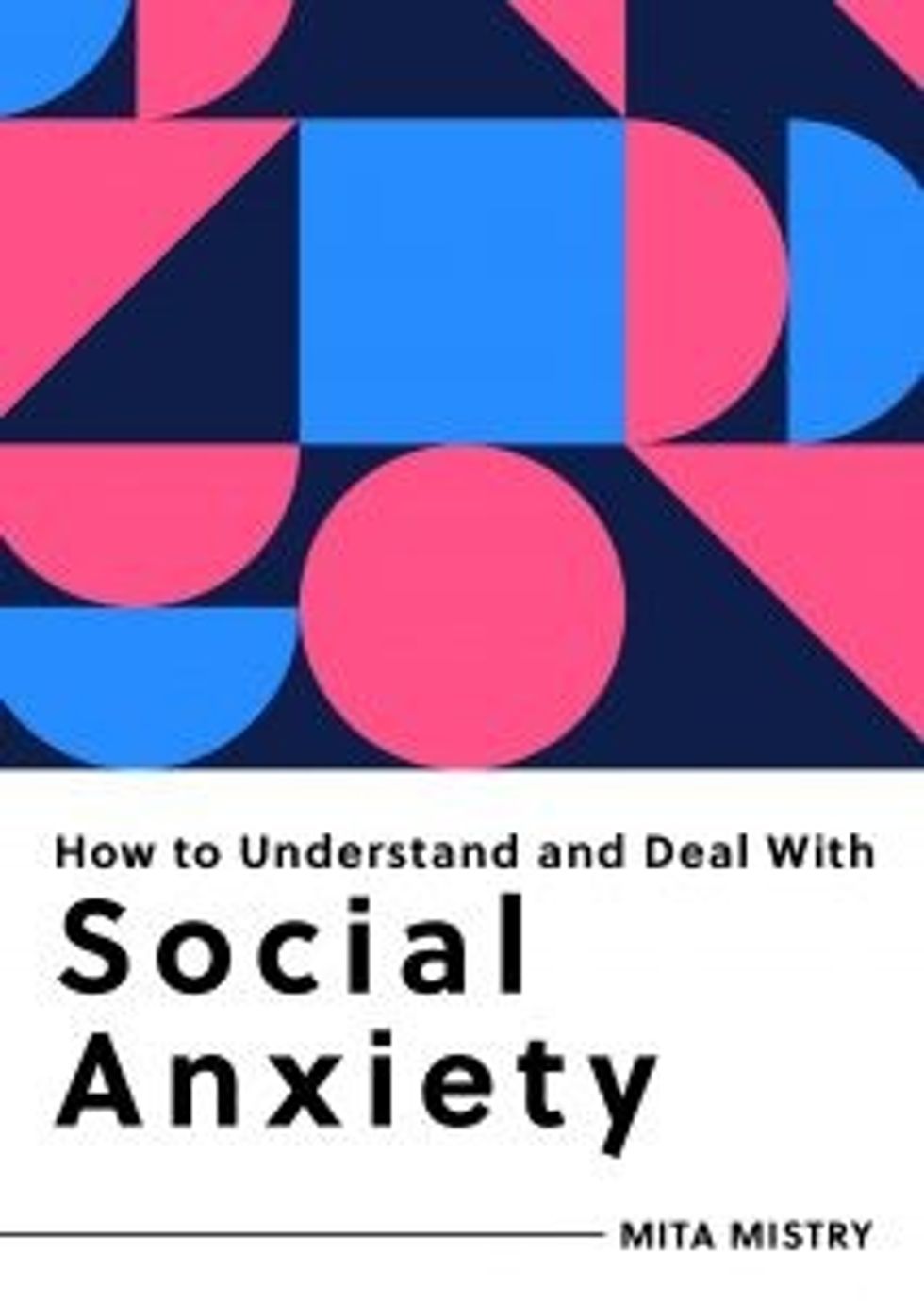Author Mita Mistry discusses her new self-help book
Everyone experiences anxiety at some point in their life and that feeling of worry, fear or deep unease can be crippling.
In some severe cases, it can lead to panic disorders, phobias and being unable to cope in social situations. Feeling socially anxious, in particular, is perfectly normal, but some suffer more severely than others, and it can negatively impact their lives in multiple ways. There has been a significant rise in feelings of social anxiety within young people.
That is why newly published book How to Understand and Deal with Social Anxiety by Mita Mistry is timely. The trained mindfulness-based cognitive therapist, columnist, and writer has used her expertise of social fears, personal experiences, and work helping others to deliver a detailed, easy-to-follow guide on everything you need to know about managing social anxiety.
She spoke to Eastern Eye about the helpful book, managing social anxiety, and stigma of mental health among south Asians.
What inspired your new book?
Human connection inspired this book. In a time of social distancing, I realised how important social connections are for our mental health, physical wellbeing, and happiness. We need each other to survive and thrive. It reminded me of growing up socially anxious and made me feel for those who struggle every day (pandemic or not) to make connections because anxiety is stopping them. After researching the topic, I found that social anxiety is the third most common mental health issue globally and fast-growing among young people.
How much did lockdown and the pandemic inform your approach?
The pandemic has been a form of trauma on society. It amplified anxiety, and often, many don’t know they have an issue with social anxiety and, sadly, it goes untreated. But they are not alone, and it is possible to deal with struggles. And that’s where the book comes in.
Tell us about the book?
The book is a friendly little guide that is accessible to all. Although it is rooted in science, anyone can pick it up. The first part helps readers understand social anxiety, so they can be self-aware and see if someone they know might have issues with it. It covers themes of belonging, shame, guilt, failure, and the importance of human connection. The second part shows readers how to deal with social anxiety, with easy-to-follow tips that encourage them to take action. Many of these are based on cognitive behavioural therapy (the recommended treatment option) and mindfulness, such as problem solving and exercises in breathing, confidence-boosting and motivation.
What was the experience of writing it?
Researching the subject through studies and scientific papers was illuminating. I loved taking a potentially abstract idea and writing it in a friendly voice. I imagined sitting next to the reader and what I would say to someone who was struggling.
Who are you hoping connects with this book?
Anxiety is a very normal human experience, so I hope everyone who is interested in looking after their mental health and those who matter to them, will connect with this book. I hope those struggling with anxiety find hope, comfort, and remedies to make their days better. I hope south Asians find some positive help from this book, since we still face so many more barriers and taboos to access mental health support.
How would you define social anxiety?
Social anxiety is the fear of being humiliated or embarrassed in front of people and how you might come across in a social situation. It’s normal for most people to feel anxious in social situations, whether it’s talking in front of a crowd, dating, job interview, or meeting new people. Social anxiety can also affect your daily functioning, relationships or career if left unchecked. It can further result in loneliness, which is linked to dementia, Alzheimer’s, and depression.
How important do you think a book like this is in the current climate?
It is very important because mental health issues are on the rise and repercussions from the pandemic are still surfacing – people’s fear, anxiety levels, and previous traumas have been triggered and many struggle in silence. In an increasingly digitally engaged world, many feel isolated, lost, and afraid of what lies ahead. Social connections are essential right now for our health, resilience, and happiness.
What advice would you give those who suffer from social anxiety?
Know that you are not alone. Even the most confident people struggle with social fears. Most people fear rejection or not getting social approval. It’s just the way humans are hard-wired – but we need communities and tribes to survive, and help is out there. By taking even small proactive steps you can break the vicious cycle of anxiety to get your life back and experience more joy.
Is mental health still an ignored issue or are things changing?
There is more awareness. But a lot more work has to be done, so that everyone has access to the right support. For example, there are many mental health awareness campaigns, but we hardly talk about social anxiety. We live in a society where people mask their fears by hiding behind devices or avoiding social situations, which, subsequently, increase social anxiety. The huge stigma around mental health in the south Asian community still exists and that needs to change too. I hope my book is a positive step in the right direction.
Why should we pick up your new book How to Understand and Deal with Social Anxiety?
This book informs, educates, offers help, and is full of uplifting words of hope. Nearly everyone would have encountered shaming experiences at some point in their life, which can leave a permanent mark on their self-esteem and make them fear rejection, avoid connections or social situations. But understanding this and learning how to deal with it is possible. It can also help those around you. Gifting this book might motivate and spark someone you love back to life.
How to Understand and Deal with Social Anxiety by Mita Mistry is published by Summersdale





